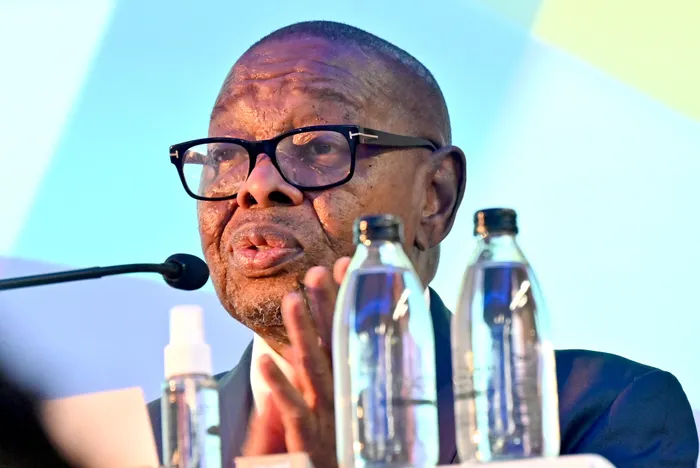College sector remains relevant to economic needs of South Africa

South Africa Cape Town 28- March - 2023 - Minister of Higher Education, Science and Innovation, Dr Blade Nzimande, and German Minister of Research and Education, Bettina Stark-Watzinger meet for the Research Networks for Health Innovation in Sub-Saharan Africa at the Vineyard Hotel Newlands. Photographer Ayanda Ndamane African News Agency (ANA)
Johannesburg - The Minister of Higher Education, Science, and Innovation, Dr Blade Nzimande, has said that the college sector remains relevant to the economic needs of South Africa.
He said this at the Black Business Council Summit held at the Radisson OR Tambo Hotel and Convention Centre in Kempton Park.
Nzimande said that the department has established 34 centres of specialisation at 20 TVET Colleges with an investment of R68 million, and “16 of our Colleges have 33 trade test centres”.
“Our centres of specialisation are well-positioned to prepare students for the workplace or for self-employment through the maintenance of close working relationships with employers in their areas of study. I must indicate that through these centres, we can now conduct trade tests in all 13 of our priority trades at TVET Colleges,” said Nzimande.
He said that trade test centres have already trade-tested over 500 people who have qualified as artisans.
Nzimande says that there was only one trade test centre for the whole country at Indlela, and this was presenting a huge obstacle in the pipeline of producing more artisans.
“We have also established entrepreneurship hubs at TVET Colleges to support students in moving into self-employment after the completion of their programmes.”
Nzimande said he has established the Ministerial Task Team to look into the implications of the 4th Industrial Revolution in the post-school education and training system.
He added that 10 colleges have introduced a new programme in Robotics.
“This is part of our curriculum transformation strategy for the TVET sector, ensuring that our colleges remain responsive to the needs of a changing economy. We have also embarked on massive TVET lecturer development in 4IR-related skills programmes in collaboration with our SETAs and their international and local partners, associations, and federations. Through the ETDP SETA, MerSETA, and Intel, we have established 4IR Centres of Excellence in 12 of our TVET colleges,” he said.
The minister said that there was nothing like visiting a medium-sized industrial area where there is a TVET college campus in the vicinity, only to find that there is not a single TVET college student or graduate placement in any of the workplaces there.
“I wish to urge South African industry to adopt programmes in our TVET colleges and support them through the supply of training equipment and facilities, as well as part-time lecturing by industry practitioners. From our experience, such partnerships benefit all participants: the government is able to provide quality training through our colleges, and employers are able to identify the best trainees for recruitment into their companies,” he said.
The Star
Related Topics: